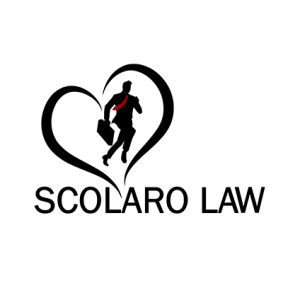Congenital heart disease is one of the most common types of birth defects. In this article, we’ll define the term “congenital heart disease” and explain how it relates to birth injury law.
Key Takeaways
- Congenital heart disease is a category of birth defects affecting the heart
- Some types of congenital heart disease are underdeveloped heart, transposition of the great arteries, pulmonary valve stenosis, coarctation of the aorta, and septal defects
- Causes of congenital heart disease include chromosome defects and the use of certain medications, cigarettes, or alcohol during pregnancy
- Symptoms of congenital heart disease include fatigue, rapid breathing, rapid heart rate, and more
- Treatments for congenital heart disease include medication, catheter procedures, implantable heart devices, surgery, and heart transplants
- If a doctor fails to detect a congenital heart disease because they do not run the proper tests or read tests improperly, it may be considered medical malpractice
What Is Congenital Heart Disease?
Congenital heart disease is an umbrella term for a range of birth defects affecting the heart. It is one of the most common types of birth defect, affecting nearly one percent of babies born in the US and UK.
Many but not all cases of congenital heart disease can be diagnosed before a baby is born via ultrasound scan.
Types of Congenital Heart Disease
There are many types of congenital heart disease including:
- Underdeveloped heart - When part of the heart doesn’t develop properly, making it difficult for it to pump blood around the body or lungs
- Transposition of the great arteries - When the pulmonary and aortic valves and arteries they’re connected to have switched positions
- Pulmonary valve stenosis - When the pulmonary valve is narrower than normal
- Coarctation of the aorta - When the aorta is narrower than normal
- Septal defects - A hole between two of the heart’s chambers
Causes of Congenital Heart Disease
Most of the time, there is no apparent cause of congenital heart disease. However, some things are known to increase a person’s risk of congenital heart disease, including:
- The pregnant parent having infections such as rubella during pregnancy
- Down’s syndrome
- Smoking or drinking alcohol during pregnancy
- The pregnant parent having poorly controlled type 1 or type 2 diabetes
- Chromosome defects
- Use of certain types of medications during pregnancy such as statins and some acne medicines
Symptoms of Congenital Heart Disease
Signs and symptoms of congenital heart disease, especially in babies and children, include:
- Swelling of the legs, stomach, or eye area
- Tiredness and rapid breathing while feeding
- A blue tint to the skin or lips
- Extreme tiredness and fatigue
- Rapid breathing
- Rapid heartbeat
Treatments for Congenital Heart Disease
Treatments for congenital heart disease vary depending on the defect type and severity. Possible treatment options include:
- Medication - Various medications can help the heart work more efficiently, prevent blood clots, or control irregular heartbeat
- Catheter procedures - A thin tube can be inserted through a vein in the leg and into the heart in order to correct some congenital heart defects
- Implantable heart devices - Devices such as pacemakers and implantable cardioverter defibrillators can help with abnormal heart rates or irregular heartbeats
- Surgery - When catheter procedures aren’t enough, surgery may be used to repair valves, widen blood vessels, or close holes
- Heart transplant - In the rare cases when a congenital heart defect is too complex to fix, a transplant may be the best course of treatment
Congenital Heart Disease and Birth Injury Law
For the best possible outcomes, early detection of congenital heart disease is crucial. Sonograms can be used to screen fetuses for heart defects at 16 to 20 weeks of pregnancy. If anything is abnormal, a specialized test called a fetal echocardiogram can be used. If a doctor fails to do the proper prenatal testing or reads or interprets the test incorrectly, it may be considered negligence.
If a medical professional failed to handle your child’s congenital heart disease properly, you may be entitled to compensation for your losses. It is recommended that you get in contact with an experienced birth injury lawyer in order to seek justice.






